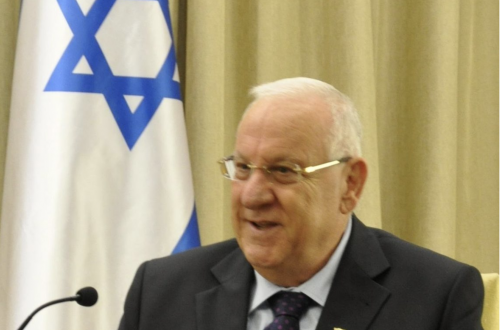Thanks to a Harry’s Place commenter, I recently learned about an Israeli heavy metal band called Orphaned Land.
I’m not a metal fan by any means, but I like the Middle Eastern vibe that Orphaned Land brings to an often tiresome genre.
At a time when it’s easy to despair about the seemingly-endless Arab-Israeli conflict, it’s encouraging to learn that the band has fans throughout the Middle East. In other words, here is at least one Israeli cultural product that real, existing Arabs and Muslims are not boycotting.
According to a report on the public radio program The World last February:
Orphaned Land actually came on to the scene 20 years ago, mixing Middle Eastern melodies with quotes from the Koran and the Bible. Another song, Sapari, takes its lyrics from a 400 year old Yemenite Jewish poem.
Ears perked up throughout the region, and the band gained fans in Arab countries, where they usually have no exposure to Israeli culture. For some Arab fans, it’s been risky. [Lead singer Kobi] Farhi said a while back, an Egyptian fan got six months in jail because he had an Orphaned Land CD. The authorities said the music was Satanism.
Then, when the band went on six-year hiatus — the usual rock band nonsense — they got an email from a fan in Jordan who sent a video attachment showing his tattoo of the Orphaned Land logo.
“This was a moment that changed our life,” Farhi said. “I understood right there, the band is most important thing we could do. So the Israeli Orphaned Land was resurrected by an Arab guy.”
A Jordanian Arab getting tattooed with the logo of an Israeli Jewish band? Surely there’s a glimmer of hope for the future in there somewhere.
When the unrest in Egypt broke out last week, Orphaned Land sent a shout out to their Egyptian fans on Facebook. Many Egyptian fans replied with gratitude. The band recently performed in Turkey, at a time when Turkish Israeli relations are at an all time low. When the band was there, they got a peace award from a Turkish university. And they met fans from Iran and Syria — countries that are sworn enemies of Israel.
“You can still practice your religion and still have peaceful relations with people around you,” said one Israeli fan in Tel Aviv. “So that’s the message and that’s good.”


